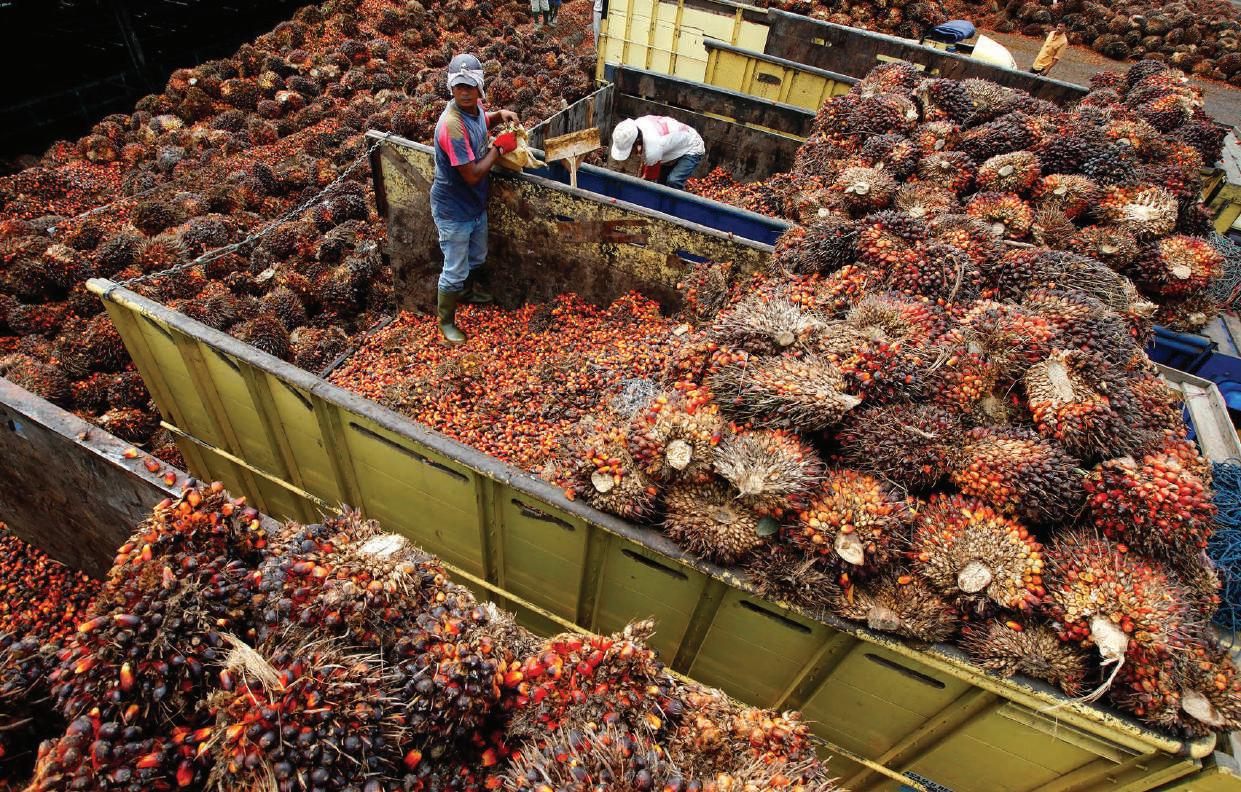
15 minute read
Malaysia Giving 100 Pct Effort on Sustainable Palm Oil


AN IMPECCABLE PARTNERSHIP BETWEEN 2 LEADING B2B MEDIA COMPANIES

x
Exhibition :
A F R I C A
2023
www.africa-palmoil.com
Trade Publication :
ABOUT US

www.africapalmoil.com
Zenith Media
Zenith Exhibitions (www.zenithexhibitions.com) is made up of a distinct team of professionals that possess unique skills and exposure in effectively organizing B2B and Trade Exhibitions. With over 15 years combined experience in Trade Promotion and the field of exhibitions, we help address the needs of industries and sectors as we strive to be the most reliable and leading exhibitions and conference organizers in Africa. We are a progressive organization that redefines brands and build businesses by creating multiple dynamic platforms. Our knowledge and experience, enables us to provide tailor-made innovative and cost effective solutions to help our esteemed clients achieve high business efficiencies.
Fireworks Trade Media Group
Established in 2008, Fireworks Trade Media Group (www.asiafireworks.com) is made up of a large conglomerate of trade media companies which owns businesses ranging from directories and magazined to trade exhibitions and conferences. In merely 11 years, we have grown leaps and bounds with our own international offices spanning in more than 10 countries, bold expansion moves one may say, but we have since silenced the critics with excellent response from our media and our commitment to give our customers the relationships and big ideas to do different and better business remains unchanged. Driven by a rich think-tank of ideas and helmed by a management team that comprises of the youngest trade exhibitions entrepreneurs in the industry, Fireworks is set to light up the stereotypical dull industrial exhibitions and publications scene with its fiery display of ideas and innovations!
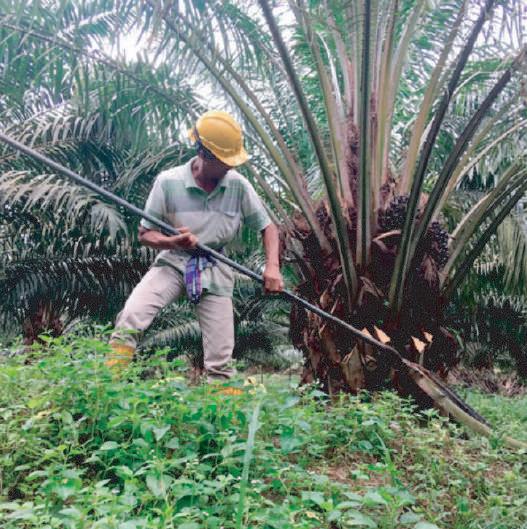








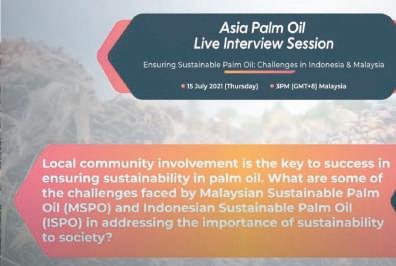

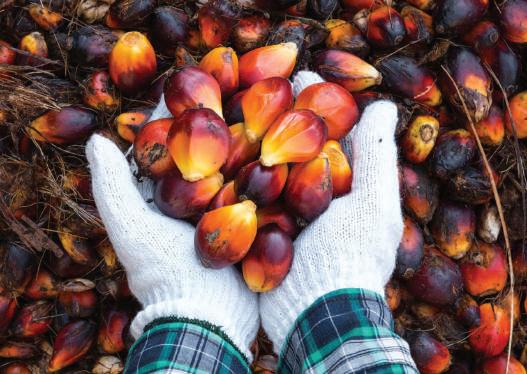


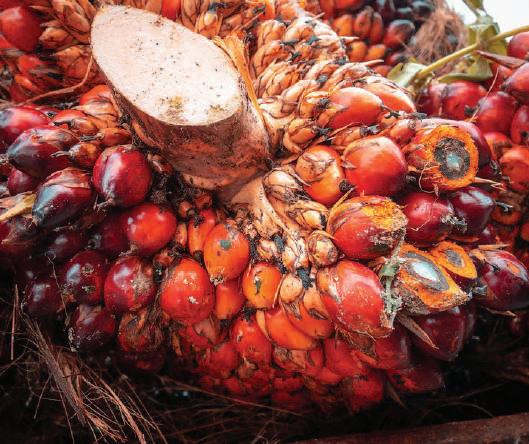
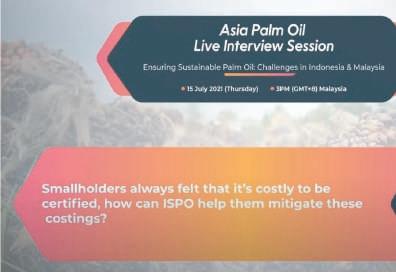
MPOB INVENTS DEVICE FOR FFB LOADING OPERATION
The device can assist workers to load fresh fruit bunches
BANGI, Malaysia – A group of researchers at the Malaysian Palm Oil Board (MPOB) led by Mohd Ramdhan Mohd Khalid have invented a technology which can assist oil palm plantation workers to load fresh fruit bunches (FFB) in their plantations.
The technology, in the form of a mobile lifter device to assist FFB loading operation was launched at the MPOB Transfer of Technology Seminar and Exhibition 2021.
It comprises a simple chassis design and hydraulic system to receive loads from a small in-field transporter. The hydraulic power pack is powered by 24V battery. With a single press of a switch button, the device will slowly lift the bucket. It is able to lift up approximately 400 kg of loads. The device is also easy to be attached or detached for towing purposes.
“Based on a study, the device is 35% faster compared to the manual loading. Hence, it will result in a significant increase of productivity for infield FFB evacuation activities. Plantations can get better oil quality as the technology can reduce multiple handlings of FFB,” said Director-General of MPOB Dr. Ahmad Parveez Hj Ghulam Kadir.
Research on this project started in 2017 and the technology has been offered for commercialisation as it is more practical and increase productivity in oil palm plantations.
The bin system which is currently used in the oil palm plantations has given significant impacts for efficient FFB collection and evacuation in plantations. This system involves the integration of bin with Mini-tractor Grabber with high lift trailer. However, most of small size in-field transporters usually drop their loads on the ground and later manually transferred into a bin/trailer. Multiple handlings of FFB will increase the overall time taken and lower the quality of oil. The workers also need to repeatedly lift the loads above over their shoulders and hence they are prone to fatigue when handling big bunches.
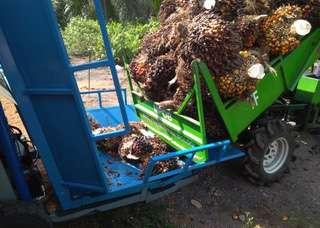
“This technology can lessen the burden of oil palm plantation workers and reduce the energy required to load the FFB. Hence, with the current labour shortage, this technology can attract more locals to work in plantations. Most importantly, it can promote green technology as it is battery powered,” he said.
The technology has attracted one local company for commercialisation. MPOB is currently in the process of transferring the technology through a licensing agreement. The involvement of industry and local companies in the commercialisation of plantation machinery technologies developed by MPOB will increase farm mechanisation practices, especially for oil palm harvesting and transportation, said Dr. Ahmad Parveez.
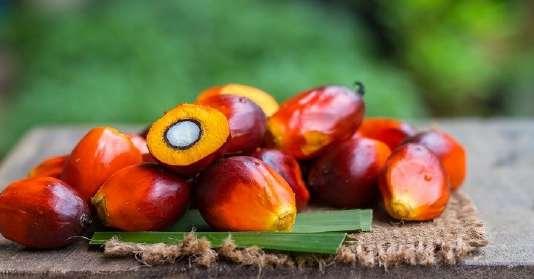
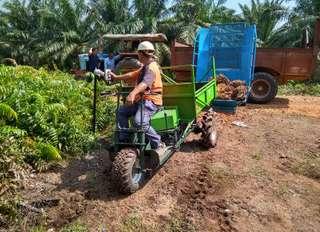

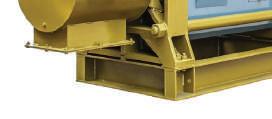


CNH Boosts its Digital Innovations
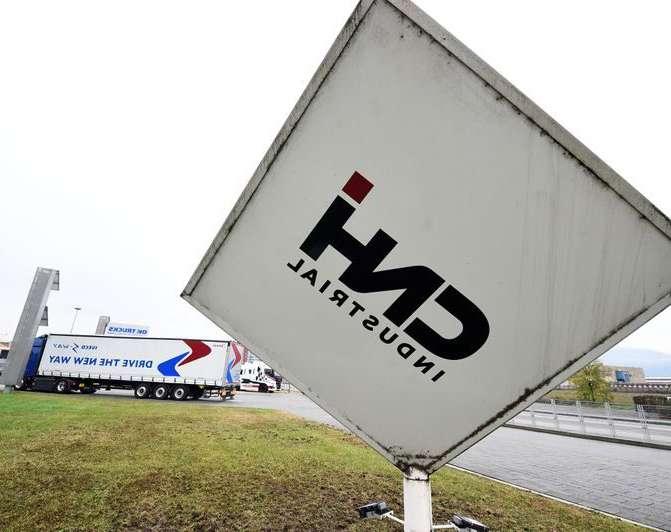
CNH INDUSTRIAL BUYS SOFTWARE HOUSE NX9 TO BOLSTER AGRICULTURE BUSINESS
MILAN : Vehicle maker CNH Industrial has bought software engineering firm NX9, it said on Thursday, in a further step to boost digital innovation in its agricultural division as it prepares to spin off its truck, bus and engine operations.
U.S.-based NX9 is a small software house specializing in so-called ‘ISOBUS’ technology for agricultural equipment, an industry-standard communication protocol which allows machines and implements to talk to each other, CNH said in a statement. No financial details of the deal were disclosed.
The investment builds upon the company’s strategic effort “to more efficiently innovate and develop products in the precision agriculture space”, CNH Industrial said.
The Italian-American group, which is controlled by Exor, the holding company of Italy’s Agnelli family, will complete on Jan. 3 a plan to spin off its truck and bus units and its FPT engine division and list them under the Iveco Group name. After the spin-off, CNH - the world’s second largest agricultural equipment maker after Deere & Co, operating under the New Holland, Case IH and Steyr brands will focus on its agriculture machine and construction equipment businesses.
Earlier this year the group struck a US$2.1 billion deal to buy Raven Industries to boost its precision agriculture and autonomy operations.
Last month it entered into a multi-year licensing agreement for electrification technologies with Monarch Tractor, a U.S. company focused on fully electric autonomous tractors.
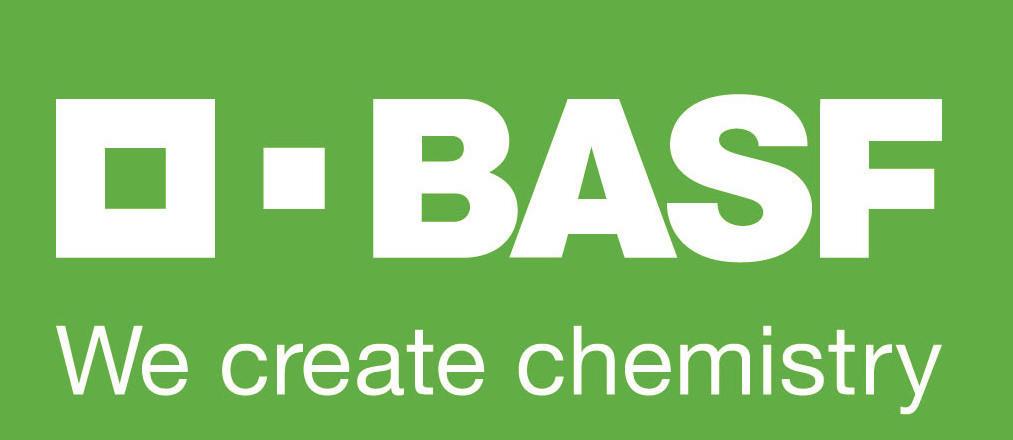


Hans Athaide, Msc(Hons), Professional and Specialty, Solutions ASEAN
A 21 year veteran of the industry, Hans has previously held positions in research and development and regulatory affairs prior to assuming a commercial role
He is currently the Business Manager of the Professional and Specialty Solutions business in ASEAN, which includes Oil Palm, Forestry, Professional Pest Control, Public Health, Turf and Ornamentals
BASF supports the Roundtable of Sustainable Palm Oil (RSPO) and market transformation towards a certified product. Do share with us BASF’s progress in this aspect. In 2021, we published our fifth progress report the BASF Palm Progress Report for greater transparency in the value chain. Based on our voluntary commitment to sustainably source palm oil products, we purchased 227,213 metric tons of certified palm kernel oil and palm oil in 2020. This represents 100% of our total volume (completely/100%) as RSPO certified.
BASF also continues to drive forward the RSPO supply chain certification of our sites for cosmetic ingredients. In 2020, 25 production sites worldwide were RSPO certified. At the same time, we will step up our efforts to improve transparency and traceability in the supply chain. We can trace almost 95 of our overall oil palm exposure back to the oil mill level in 2020 - totaling 441.107 metric tons.
On top of these achievements, BASF published and enhanced Palm Sourcing Policy as well as our Forest Positioning. In 2020, BASF also participated for the first time in CDP Forest, which resulted in A-. Selontra contains cholecalciferol in a highly palatable bait matrix that can control rats and mice. What was the main driving force behind this innovation? And how long did BASF take to come out with such a formulation?
Selontra is a result of more than a decade of research and development. Our driving force was a clear market need for an innovative, palatable and effective bait that did not rely on anticoagulants given their many disadvantages. After screening and testing over 1,200 different possible candidates over 10 years, cholecalciferol was identified as the best candidate for a new rodenticide active ingredient as it offered a unique mode of action (hypercalcemia), short time to death, and reduced environmental impact. However, a highly palatable bait matrix was required to transform cholecalciferol into an effective rodenticide bait. It took a team of biologists and formulation chemists three years to develop the right formulation for Selontra. But the result speaks for itself.
Could you share with us some of the users of Selontra in this region for the palm oil industry? While we can’t share any names due to customer privacy, several large plantation operators have successfully integrated Selontra into their rodent management program with excellent results.
Describe ‘Speed Baiting’, which is one of the unique features of Selontra. How does it differ from other products of rodenticides? Selontra’s extremely high palatability and fast stop-feeding effect mean that plantation mangers can control even large rodent populations within 7 days with just a single application of 1 bait block per tree (though in cases of very high infestations, an additional application may be needed). This means that Selontra can control infestations in as little as 1 - 2 applications. In comparison, other rodenticides often require 4-8 applications to get effective control resulting in a need for additional bait and labor, and more damage of oil palm fruit due to slower control of the infestation.
With the unique chemistry and palatability of Selontra, plantations can reduce the amount of bait and the number of applications needed to control rodent infestations, which saves valuable time and money and reduces yield loss.
Selontra has minimal impact on non-targets, especially barn owls that are natural predators of rodents. This makes it aligned with the RSPO principles of Integrated Rodent Pest Management using natural predators of rodents. Please share with us how BASF caters their products to a different group of clients, especially smallholders. Would they be able to benefit from this and its affordability? Selontra is available to farmers both large and small. All producers value protecting their yield from rodent damage. In addition, when you factor in labor costs/time savings and increased yield, Selontra is more cost-effective than the current anticoagulant baits used by smallholders. We’re working to help educate the market – including smallholders on how to use Selontra effectively so that they can increase their yields, reduce costs, and ultimately boost their income.
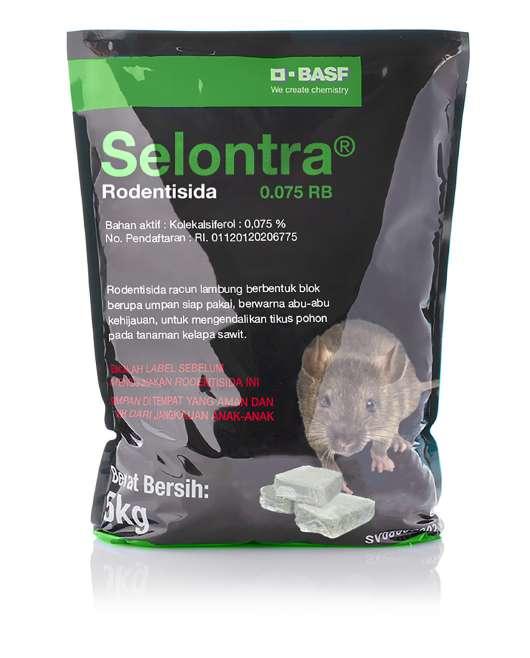
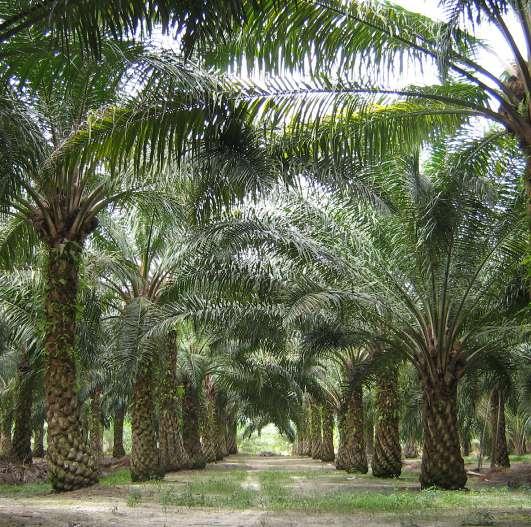
It’s not often that we see BASF involved in the palm oil industry, are there other new products lined up with regards to pest management besides Selontra as BASF makes its foray into the industry? BASF has a wide portfolio of products for the oil palm market which includes herbicides and insecticides, in addition to rodenticides like Selontra . Our main objective is to help oil palm planters produce more from their existing plantations. Our products help farmers in reducing the number of agrochemicals being applied in the environment, reduce labor costs, and protect their yield. For the future, we have a pipeline of long-lasting herbicides which have the potential to improve labor productivity and reduce applications that are planned for launch in Indonesia in the coming years.
Igbo men in the Oil Rivers area of present-day Nigeria bring calabashes full of palm oil to sell to a European buyer, c. 1900 (Image © Jonathan Adagogo Green / The Trustees of the British Museum, CC BY NC SA)

RED GOLD: A HISTORY OF PALM OIL IN WEST AFRICA
For thousands of years, the oil palm indigenous to West Africa has had an intimate relationship with humans. An explosive expansion of oil palm groves throughout western and central Africa in the wake of a dry period around 2,500 years ago enabled human migration and agricultural development; in turn, humans facilitated oil palm propagation through seed dispersal and slash-and-burn agriculture. Archaeological evidence shows that palm fruit and kernels and their oil already formed an integral part of West African diets 5,000 years ago.
Oil palms were not only protected as a valuable crop, they also grew well in cleared and burned areas. Abandoned villages and farm camps often became prominent palm oil groves; even today the age and distribution of oil palms can help easily identify old settlements. With the exception of “royal” oil palm plantations, established in the 18th century for palm wine in the Kingdom of Dahomey, all of West Africa’s oil palms grew in such wild and semi-wild groves.
Women and children collected loose fruits from the ground, while young men harvested fruit bunches by climbing up to the top of the palms. The fruit was then processed into palm oil by women, through a time-consuming and labour-intensive process involving repetitively boiling and filtering the fresh fruits with water similar methods are still largely used throughout West Africa. While pure red palm oil was derived from the palm fruit’s fleshy outer mesocarp, women also, often with the help of children, cracked the palm kernels to make brown, clear palm kernel oil.
Palm oil was, and remains, a key ingredient in West African cuisine, such as that of southern Nigeria: from the simple dish of boiled yam, palm oil and Kanwa salt, to Banga soup made from the mashed fruit left over during palm oil processing and many other “soups” eaten with pounded yam or garri (ground cassava).
Throughout West Africa, palm oil was also used in soap making today Yoruba black Dudu-Osun soap is a trademark Nigerian brand. In Benin Kingdom, palm oil was used in street lamps and as a building material in the king’s palace walls. It also found hundreds of different ritualistic and medicinal uses, in particular as a skin ointment and a common antidote to poisons. In addition, the sap of oil palms was tapped for palm wine, and palm fronds provided material for roof thatching and brooms.
ADVERTISERS’ INDEX
PALM OIL TODAY AFRICA
FRONT COVER YKL Group www.yklgroup.com.my INSIDE FRONT COVER YKL Group www.yklgroup.com.my
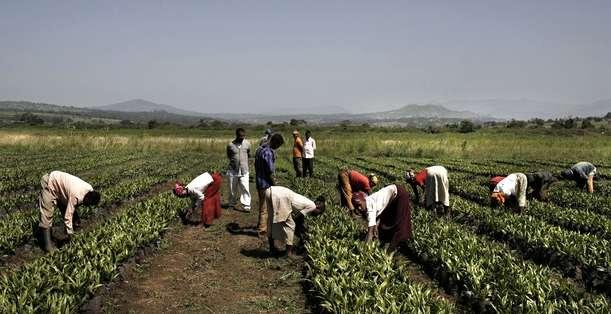
PAGE 1 Palm King Marketing Sdn Bhd www.klspalmking.com PAGE 3 Alfa Laval Malaysia Sdn Bhd www.alfalaval.my PAGE 13 Hisakaworks S.E.A Sdn Bhd www.hisaka-asia.com
PAGE 21 Taner Industrial Technology Sdn Bhd www.taner.com.my PAGE 31 Muar Ban Lee Group Berhad www.mbl.com
INSIDE BACK COVER Mvance Engineering Sdn.Bhd / PT Mvance Indo Pratama www.m-vance.com BACK COVER JJ-Lurgi Engineering Sdn Bhd www.jj-lurgi.com
TO ADVERTISE OR TO SUBSCRIBE, PLEASE CONTACT US
International Enquiries :
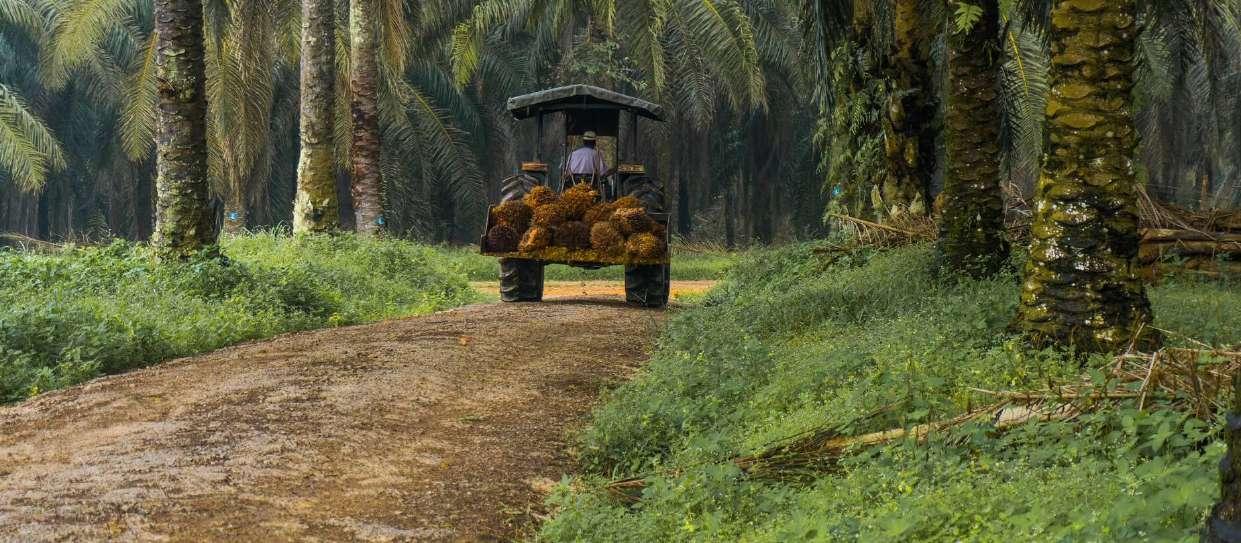
+62 812 7562 8281
Email : africa@asiafireworks.com Africa Enquiries :
info@zenithexhibitions.com www.africapalmoil.com



"YOUR LEADING ENGINEERING PARTNER IN AFRICA"

Visit our website : www.m-vance.com
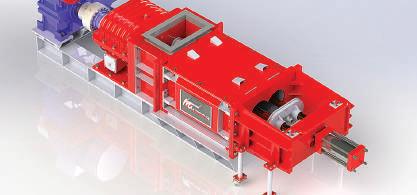
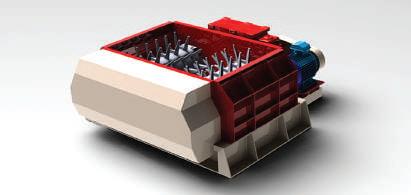
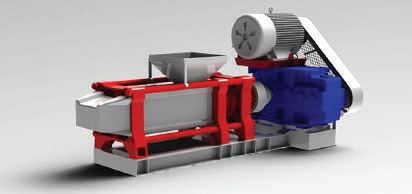
TW-15 & 20 FFB SCREW PRESS M-6000 FFB CRUSHER M-15 PALM KERNEL PRESS
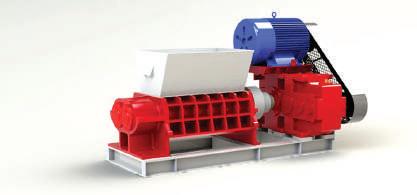

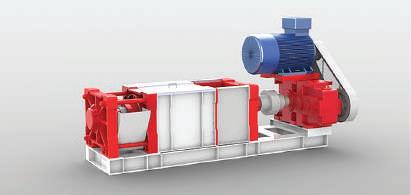
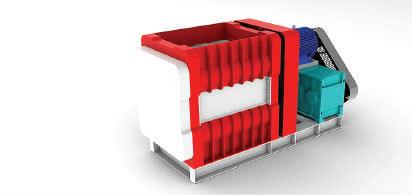
MS-800R EFB SHREDDER MB-900R EFB PRESS MC-60 BUNCH CRUSHER
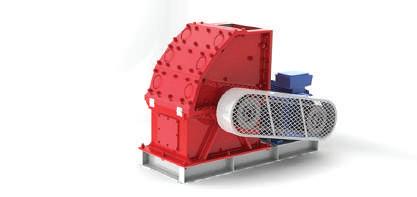

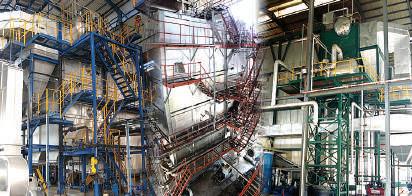
HM-7000 HAMMER MILL SPARE PARTS BOILER

CONTACT US :

FOR ENQUIRIES :
Email : id@m-vance.com Mobile/Whatsapp : +62811 8955 335
HEAD OFFICE
MVANCE ENGINEERING SDN.BHD.
JA 2531, Kawasan Perindustrian Merlimau, 77300, Merlimau, Melaka, Malaysia Phone : +606 263 3339 Fax : +606 263 3113 Email : mail@m-vance.com
INDONESIA BRANCH
PT. MVANCE INDO PRATAMA
Green Sedayu Bizpark Blok DM 1 No. 57 Jl. Daan Mogot KM. 18 RT. 11 RW. 6 Kalideres Kec. Kalideres Kota Jakarta Barat 11840, Indonesia Phone : +6221 5433 5533 / +6221 5433 3355 PALM OIL TODAY AFRICA MAGAZINE | JANUARY - MARCH 2022Email : id@m-vance.com







